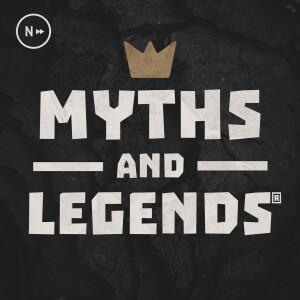

Year Zero: Exploring Identity and Memory in a Post-War World
Year Zero: A History of 1945, written by Ian Buruma, is a historical non-fiction book that explores the aftermath of World War II and the year 1945. The book focuses on the effects and consequences of the war on different parts of the world, ranging from Europe to Asia and America.
Buruma delves into the political, social, and cultural changes that occurred during this pivotal year. He examines how nations and individuals, both victors and vanquished, dealt with the widespread devastation and loss, and how they attempted to rebuild their societies and establish new orders. The book also delves into the war crimes trials, the challenges of demobilization and repatriation of soldiers, the reshaping of borders, and the emergence of new political powers.
Buruma provides accounts of individual experiences and stories from various regions, shedding light on the diverse responses to the trauma of war and the pursuit of justice. He explores the tension between justice and forgiveness, and how each country and culture grappled with the guilt and responsibility for the atrocities committed during the war.
Through his narrative, Buruma presents a complex and nuanced understanding of the year 1945, challenging simplified narratives and offering a rich exploration of the aftermath of World War II.
Chapter 2:Author of Year Zero bookIan Buruma is a renowned author, journalist, and academic, known for his insightful writings on various topics such as culture, history, and politics. Born on December 28, 1951, in The Hague, Netherlands, Buruma spent much of his childhood living in England, Germany, and Switzerland.
Buruma has a diverse educational background, having studied Chinese art and history at the University of Leiden in the Netherlands and film at Nihon University in Tokyo, Japan. This exposure to different cultures and perspectives is reflected in his work, which often offers a cross-cultural understanding of global issues.
One of Buruma's notable works is the book "Year Zero: A History of 1945," published in 2013. In this book, he explores the immediate aftermath of World War II, focusing on the year 1945, which he considers a pivotal period in shaping the post-war world. Buruma delves into the experiences of individuals from various countries, including Germany, Japan, China, and the United States, to provide a nuanced understanding of the consequences of war, occupation, and reconstruction.
As an accomplished journalist, Buruma has written for several prominent publications, including The New Yorker, The New York Review of Books, and The Guardian. He has also held editorial positions at magazines such as The Times Literary Supplement and The New York Review of Books.
Buruma's wide-ranging expertise has made him a sought-after commentator on international affairs and cultural issues. He has been a frequent guest on television and radio programs and has served as a professor of democracy, human rights, and journalism at Bard College in New York.
With his insightful analyses and thought-provoking writing, Ian Buruma continues to contribute to our understanding of history, culture, and the complexities of our globalized world.
Chapter 3:why is Year Zero book worth readingYear Zero by Ian Buruma is worth reading for several reasons:
- Insightful Perspective: The book offers a unique and insightful perspective on post-World War II Japan. Buruma, a Westerner who lived in Japan for several years, provides an outsider's viewpoint, allowing readers to see beyond the stereotypes and gain a deeper understanding of the country's cultural and political landscape.
- Comprehensive Approach: Buruma covers various aspects of Japanese society in Year Zero, including politics, media, literature, film, and popular culture. He weaves these different elements together to create a comprehensive picture of Japan's transformation during the years following the war.
- Balancing History and Personal Stories: The author skillfully combines historical analysis and personal accounts, making the narrative engaging and relatable. By integrating individual stories alongside broader historical events, Buruma humanizes the complex and often abstract concepts of societal change.
- Exploration of Historical Amnesia: Year Zero delves into the concept of historical amnesia and its impact on Japan's post-war society. Buruma discusses how Japan struggled to confront its wartime past, resulting in a collective forgetting or selective memory. This exploration adds an extra layer of depth to the book's examination of Japan's transformation during this period.
- Cultural Analysis: The book also examines the interplay between traditional Japanese culture and the influences of Westernization and modernization. Buruma analyzes how these contrasting forces shaped Japan's identity and challenged its social norms.
Overall, Year Zero offers a thought-provoking analysis of Japan's post-war years, providing readers with a deeper understanding of the country's cultural, social, and political changes. Ian Buruma's engaging narrative style and comprehensive approach make it a worthwhile read for anyone interested in Japanese history, culture, or post-war societies.
Chapter 4: Books like Year Zero bookIf you enjoyed "Year Zero" by Ian Buruma, you might like the following books:
- "The Geography of Thought: How Asians and Westerners Think Differently...and Why" by Richard E. Nisbett: This book explores the cognitive styles and cultural differences between Eastern and Western societies, providing insights into how these different perspectives shape our understanding of the world.
- "One Man's Bible" by Gao Xingjian: This novel delves into the memories and experiences of a Chinese man who lived through the Cultural Revolution in China. It offers a deeply personal account of a turbulent period in history.
- "Interpreter of Maladies" by Jhumpa Lahiri: This collection of short stories explores themes of cultural displacement, identity, and the immigrant experience. It highlights the complexities and challenges faced by individuals navigating between different cultural worlds.
- "The Sympathizer" by Viet Thanh Nguyen: Set during and after the Vietnam War, this novel follows a double agent who immigrates to the United States. It offers a satirical and thought-provoking exploration of the collision between individual identities and political ideologies.
- "The Narrow Road to the Deep North" by Richard Flanagan: Winner of the Man Booker Prize, this novel tells the story of an Australian doctor who becomes a prisoner of war during World War II. It explores themes of memory, love, and the impact of war on individual lives and societies.
- "The Namesake" by Jhumpa Lahiri: This novel follows the journey of a young Indian-American man who struggles with his identity and sense of belonging. It offers a poignant exploration of cultural assimilation, generational conflicts, and the search for personal identity.
More Episodes
All Episodes>>Create Your Podcast In Minutes
- Full-featured podcast site
- Unlimited storage and bandwidth
- Comprehensive podcast stats
- Distribute to Apple Podcasts, Spotify, and more
- Make money with your podcast












